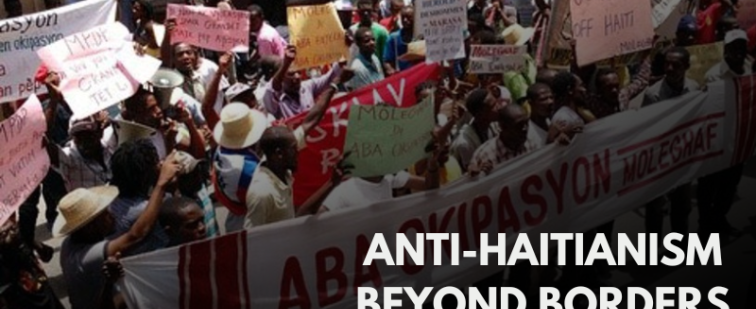Home
"There will be violence, there will be clashes.” So said Bolivian opposition lawmaker Fernando Messmer in November, as six of the country’s departments staged a general strike to protest the rewriting of the national constitution. As we go to print, at least three people have been killed in riots on the streets of Sucre, where the Constituent Assembly meets, after right-wing demonstrations turned into riots. The assembly has been meeting for the past year with little to show for its efforts, largely because the party right has managed to gum up the process with dilatory maneuvers and outright obstruction, while its supporters have taken to the streets, often resorting to violence and harassment.
The movement to close the School of the America (SOA) punctures the founding myths of American exceptionalism. These myths include the belief that the United States is committed to democracy for all, that it is essentially good, and that because it is good, the United States only uses its power for virtuous ends. The presumed innocence of the United States and its citizens insures that “we” are always the victims of the violence of others. This historical shortsightedness perpetuates a widespread amnesia about the naked violence that has supported U.S. imperialism and the acceptance of torture by U.S. officials for decades.
With an increasing number of presidential primaries occurring around the country in the very early part of 2008, those of us concerned with Latin America are forced into an earlier-than-ever examination of the candidates’ stances on foreign policy. Though we might have expected that Latin America would be overshadowed entirely by the continuing wars in Iraq and Afghanistan, or emerge only in the context of immigration, hemispheric relations have come up surprisingly often in early campaigning. So what do the candidates talk about when they discuss Latin America? In a word, Chávez.
Big fish eat littler fish. It might be a law of nature, but this makes it no less abusive. And this is exactly what could happen within the Bank of the South if an Argentine initiative, with Brazilian support, is successful.
It was a transitional year. South American social movements carried out few major actions. For them, the year constituted a slow re-composition of forces, while many affirmed their autonomy from left and progressive governments. In 2007, social movements confronted two new fronts: the consolidation of a second and new wave of neoliberalism (based on commodities) and a correlation of forces, on a regional level, in which “progressive” governments play the dominant role.
MEXICO CITY, Jan 10 (IPS) – The Zapatista guerrillas and their supporters in the southern Mexican state of Chiapas are experiencing the worst onslaught by state forces in the last 10 years, although most people are unaware of the fact, according to reports from a research centre working in the area.
Protests against the Federal Bureau of Investigations (FBI) for subpoenas granted to activists in a grand jury trial investigating the Boricua Popular Army–Macheteros will be held in New York, Pennsylvania, Florida, Ohio, Illinois, and California, as well as Puerto Rico.
The protests will be held January 10 in Puerto Rico, and the following day simultaneous protests will be held across the United States. The protests are promoting non-collaboration with the grand jury.
Groups and individuals from diverse sectors of the Puerto Rican pro-independence movement and the Boricua Community in general, are urgently meeting in Puerto Rico and throughout the Diaspora to organize against the latest offensive by the U.S. Department of Justice, after being informed that several young Boricua pro-independence activists from New York City have been subpoenaed to appear before a Federal Grand jury investigating the Puerto Rican Independence Movement in general, and in particular, the Ejercito Popular Boricua (EPB: Popular Boricua Army), the Macheteros.
"Let's go unblock the road, compañeros!" a man in an old baseball cap yells as he joins a group of people hauling rocks and tires from a central intersection in Cochabamba. This group of students and union activists are mobilizing against a civic strike led by middle class foot soldiers of the Bolivian right. These actions in the street are part of a political roller coaster that is dramatically changing Bolivia as it enters the new year.
In Honduras, campesinos are working with grassroots solidarity organizations to take the media into their own hands. Radio Realidad is one of a growing number of small FM stations that are popping up throughout Latin America to address communities' needs for information.












